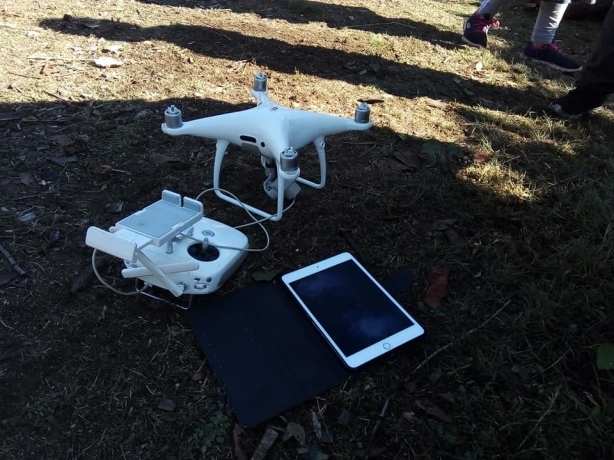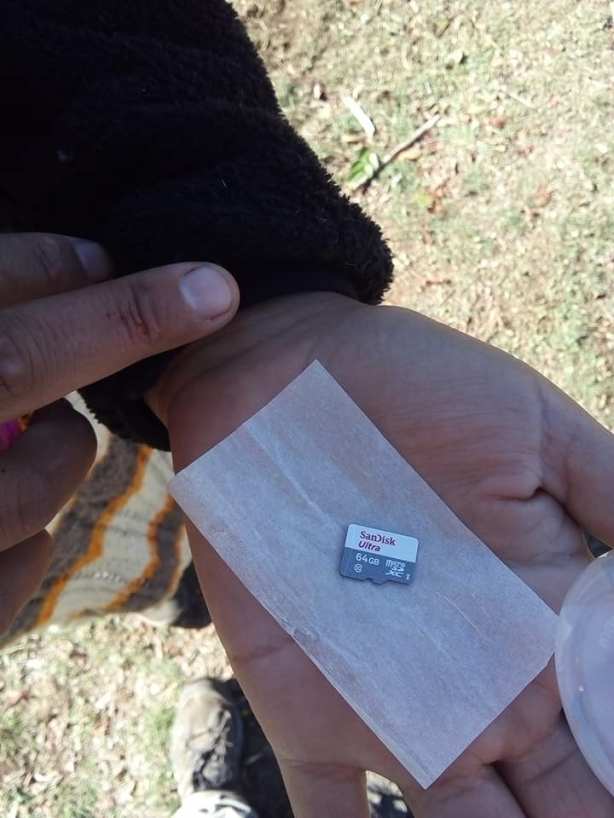Le 29 août 2023, l’autorité spirituelle du peuple mapuche au Chili, Machi Millaray Huichalaf Pradines, son compagnon Jaime Uribe Montiel et leur fille de deux ans, après avoir parcouru plus de 800 kilomètres depuis leur communauté dans la région de Los Rios jusqu’à Santiago du Chili, ont pris un avion avec escale à Paris, en France, pour se rendre à leur destination finale, Oslo, en Norvège, où elle était invitée à donner une conférence à l'”Université de Bergen”.
À l’aéroport, ils sont passés par la police d’investigation chilienne, et n’ont eu aucune difficulté à monter à bord de l’avion et à effectuer les 12 heures de voyage jusqu’à Paris. Lorsque l’avion est descendu à Paris, ils ont été appelés par le haut-parleur de l’avion ; lorsqu’ils ont essayé de s’approcher de la cabine, cela n’a pas été possible en raison de toutes les personnes qui essayaient de débarquer, et tous les passagers ont donc été priés d’avoir leurs passeports en main car ils allaient tous être contrôlés avant de descendre.
Lorsqu’ils se sont présentés dans la cabine, on leur a dit qu’ils seraient retenus à 8 heures du matin à Paris . Ils avaient des billets pour se rendre à Oslo à 8 h 45 et devaient embarquer immédiatement, mais du fait qu’ils ont été retenus, ils ont manqué leur vol – lorsqu’ils ont essayé d’enregistrer ou de photographier ce qui se passait, la police s’est énervée et ils ont donc dû renoncer à le faire. Ils ont été emmenés dans un train jusqu’à un bureau souterrain où ils ont pu voir un document que la police française avait en sa possession. Sur ce document, apparaissait le visage de Machi Millaray sur une page et sur l’autre le visage de son compagnon Jaime Uribe, et sur ces pages il était écrit : ATTENTION DANGER.
La police française a déclaré que ce document avait été envoyé du Chili aux premières heures de la matinée et que la communication contenait un résumé des affaires judiciaires, sans indiquer si elles étaient en vigueur ou non. Il est important de préciser qu’aucune des personnes retenues en France ne fait l’objet d’un mandat d’arrêt ou d’une mesure conservatoire dans le cadre d’une affaire judiciaire qui l’empêcherait de voyager conformément à la législation en vigueur au Chili.
Grâce à des traducteurs, la Machi Millaray a pu se présenter et rendre compte de son travail de défense de l’eau et des rivières au Chili, en dénonçant l’installation d’un barrage hydroélectrique par l’entreprise Statkraft, propriété de l’État norvégien, sur des sites d’importance spirituelle et culturelle. Les raisons du voyage en Norvège étaient également expliquées ; il s’agit du deuxième voyage en Norvège, cette fois à l’invitation de l’université de Bergen et dans le but de dénoncer Statkraft et de protéger le territoire sur lequel vivent des peuples indigènes. Malgré la discrimination engendrée par les informations données par l’État chilien, les autorités françaises ont été respectueuses de la Machi Millaray et ont décidé, conformément à la loi et à la non-discrimination, de la laisser terminer son voyage, qui s’est achevé à Oslo, où ils se portent bien et n’ont pas de séquelles physiques.
La situation vécue par l’autorité spirituelle et sa famille est un acte de discrimination commis par l’Etat chilien et qui doit faire l’objet d’une enquête, en vertu des obligations contractées à l’égard des peuples originaires et des défenseurs de l’environnement, ainsi que de la responsabilité administrative de la personne qui a transmis cette information.
Video:
https://www.youtube.com/watch?v=xzr2IHJKcxY


